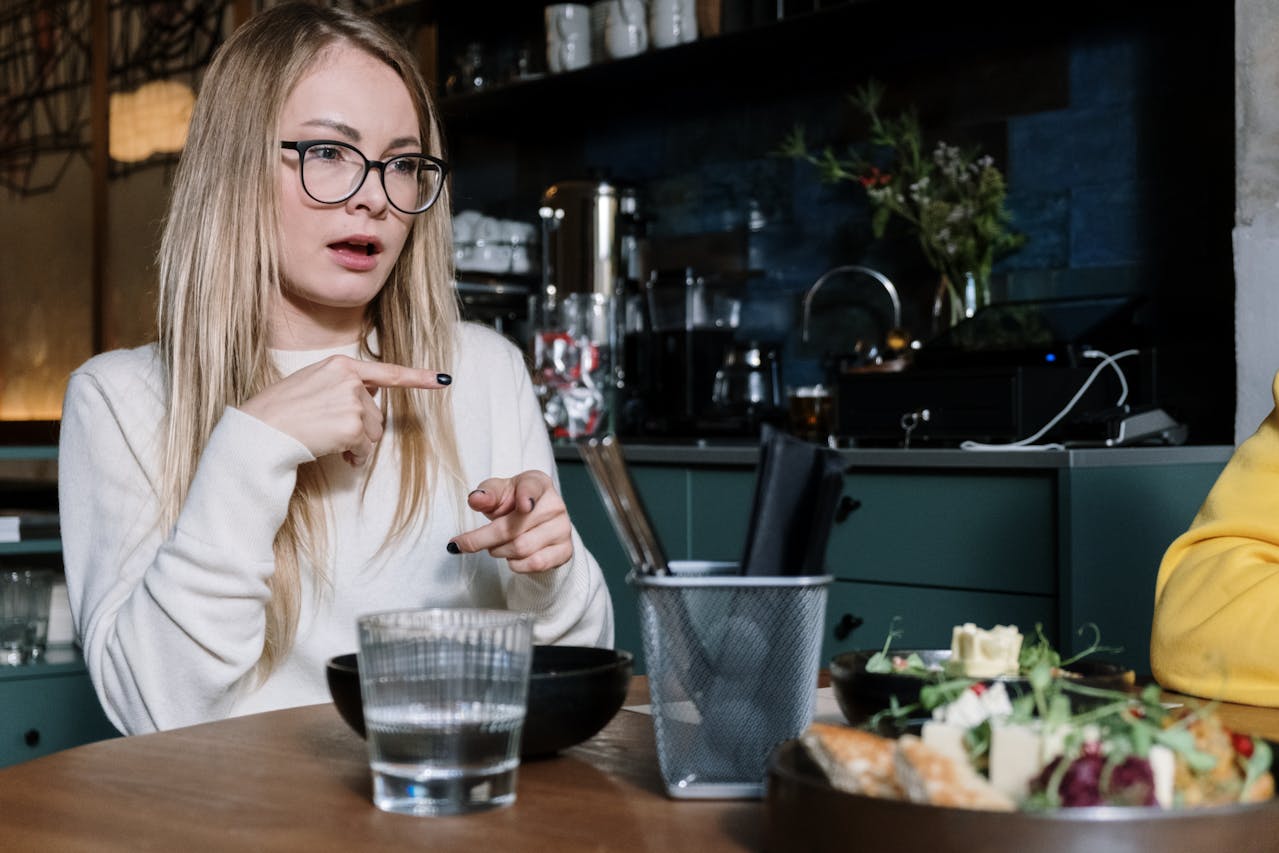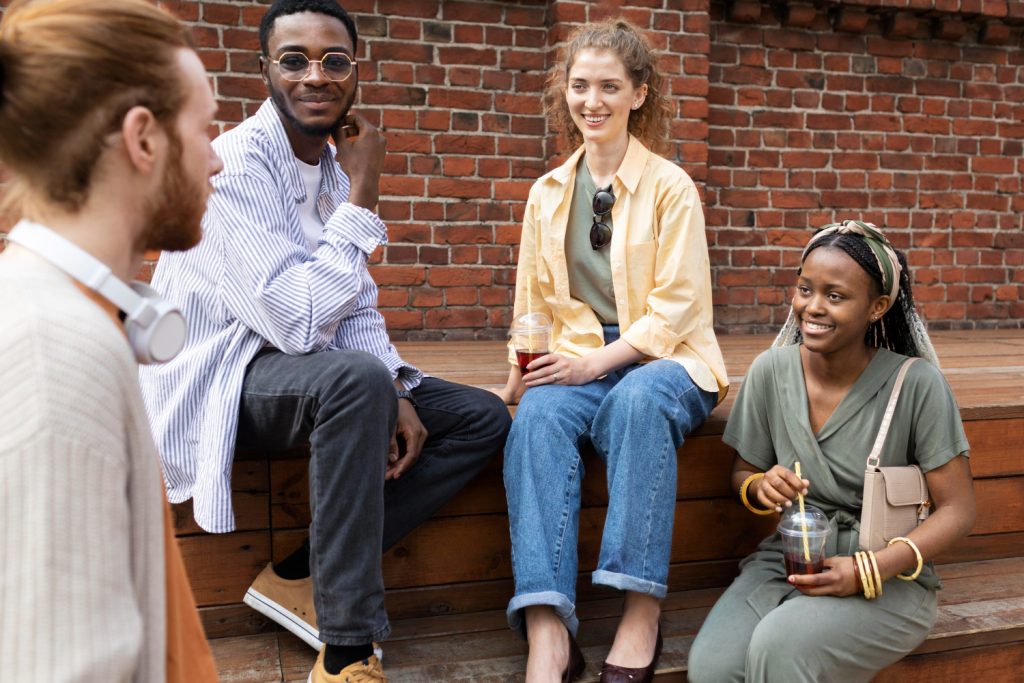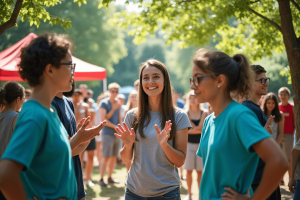
The Power of Deaf Representation in Media: Why It Matters
- Posted by Cicada Sign
- Categories Blog
- Date September 23, 2024
- Comments 0 comment
In a world where media shapes public perception, representation matters. Seeing one’s own community reflected on screen can be empowering, offering validation and visibility. For the Deaf community, accurate and authentic representation in TV, film, and social media is more than just a “nice-to-have”—it’s essential for fostering understanding, reducing stereotypes, and empowering individuals.
In recent years, we’ve witnessed significant strides in the portrayal of Deaf individuals and their stories. However, there’s still a long way to go. In this blog, we’ll explore why Deaf representation in media is so important, highlight some key success stories, and discuss how greater inclusion can benefit both the Deaf community and society at large.
Why Deaf Representation Matters
Representation is powerful. It allows individuals to see themselves in the narratives that shape our world, whether it’s through a movie, a TV show, or a social media platform. For the Deaf community, positive and authentic representation can:
Challenge Stereotypes
For many hearing people, their understanding of Deafness comes from what they see in the media. Unfortunately, that often means encountering stereotypes, such as portraying Deaf individuals as pitiful or incapable. Authentic representation, on the other hand, portrays Deaf individuals as fully realized characters with complex lives, ambitions, and emotions—shattering the notion that Deafness is a limitation.Empower Deaf Individuals
Seeing Deaf characters on screen who are strong, independent, and successful allows Deaf individuals, especially young people, to believe that they, too, can achieve great things. Representation becomes a mirror that reflects their potential, offering role models and igniting confidence. Figures like Nyle DiMarco, a Deaf activist, model, and actor, have become trailblazers, showing that Deaf individuals can excel in the entertainment industry and beyond.Foster Awareness of Deaf Culture
Media that incorporates Deaf culture can educate hearing audiences about the richness and diversity within the Deaf community. For example, American Sign Language (ASL) is a key part of Deaf culture, yet it’s often overlooked in mainstream media. When characters communicate using ASL, it helps normalize sign language, encouraging more people to learn it and fostering inclusivity. It also showcases Deaf culture as something to be celebrated, not pitied.
Success Stories of Deaf Representation in Media
1. Nyle DiMarco
Nyle DiMarco is arguably one of the most visible Deaf figures in contemporary media. He rose to fame as a winner of “America’s Next Top Model” and “Dancing with the Stars.” But his true legacy goes beyond his achievements in these competitions. As a passionate advocate for Deaf representation, DiMarco has leveraged his platform to raise awareness about Deaf culture and the importance of authentic representation in Hollywood. His work continues to break barriers for the Deaf community, showing that Deaf individuals can thrive in any industry.
2. “CODA” (2021)
The 2021 film “CODA” (Children of Deaf Adults) became a breakthrough success, earning multiple accolades, including an Academy Award for Best Picture. The movie tells the story of a hearing teenager navigating life with her Deaf family. Importantly, the Deaf characters were portrayed by Deaf actors, which made the film’s depiction of Deaf culture and family dynamics authentic and impactful. The success of “CODA” demonstrated that there is a significant audience for films that focus on Deaf experiences, proving that Deaf stories are not niche—they’re universal.
3. “A Quiet Place” (2018)
In “A Quiet Place,” actress Millicent Simmonds, who is Deaf, played a key role in this suspenseful film where sound is central to the plot. Including a Deaf actor in a major blockbuster showed that Deaf talent can—and should—be a part of mainstream Hollywood. Simmonds’ performance added depth to the film, further highlighting the importance of Deaf actors portraying Deaf characters.
The Impact of Social Media
In addition to film and television, social media has become a crucial platform for Deaf individuals to tell their own stories and connect with others. Platforms like Instagram, TikTok, and YouTube have provided Deaf content creators with the space to amplify their voices, share their experiences, and educate the world on Deaf culture.
Influencers like Rikki Poynter and Nakia Smith (aka @itscharmay) have gained significant followings by creating content that addresses Deaf issues, offers tutorials on sign language, and provides a window into the Deaf experience. This new wave of Deaf influencers is shifting the narrative by allowing Deaf individuals to take control of their representation and share their stories in an authentic way.
How We Can Support Deaf Representation
Hire Deaf Talent
One of the simplest ways to support Deaf representation in media is to hire Deaf actors, directors, and crew members. This not only ensures authenticity but also provides more opportunities for Deaf professionals to thrive in the industry.Collaborate with Deaf Consultants
When telling Deaf stories, it’s crucial to consult with Deaf individuals to ensure that the portrayal is accurate and respectful. This prevents harmful stereotypes and promotes a better understanding of Deaf culture.Learn Sign Language
Encouraging people to learn sign language—whether through incorporating it into media or providing accessible resources—can help bridge the gap between the Deaf and hearing worlds. Sign language should be celebrated and promoted, not seen as a barrier.
Cicada Sign’s Mission: Supporting Deaf Empowerment
At Cicada Sign, we are committed to empowering the Deaf community through education, advocacy, and representation. We believe that by supporting Deaf voices in the media, we can create a world where Deaf individuals are not only seen but also understood and valued. Our mission is to provide accessible resources that foster inclusion, empower Deaf individuals, and break down communication barriers.
Representation matters. When Deaf individuals see themselves authentically portrayed in media, it fosters confidence, breaks down stereotypes, and promotes greater understanding of Deaf culture. While progress has been made, there’s still more work to be done to ensure that Deaf stories are told, not as token gestures, but as integral parts of the human experience.
At Cicada Sign, we continue to advocate for greater Deaf representation and look forward to a future where media celebrates diversity in all its forms.





